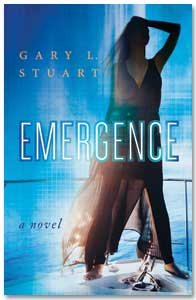Mythopoeia, as a fiction genre is literally of legend. Mythopoeia is Greek for mythos-making. As the name suggests, it’s a narrative genre where a fictional mythology is created by the author. Lord of the Rings author, JRR Tolkien, first used the term as the title of one of his poems in order to explain and defend creative mythmaking.
In recent years it became a writing thing and a public mania all at once. Its early authors include The Hunger Games by Suzanne Collins, Percy Jackson by Rick Riordan, and A Song of Fire and Ice series by George RR Martin. It spawned the TV drama Game of Thrones.
The elementary question, my dear, as Sherlock might have put it to Watson, is if the myth is made up, is it still a myth?
Myth is a folklore genre consisting of narratives that play a fundamental role in all civilized societies. Scribed as foundational tales or origin myths, they play an important role in understanding who we are by looking at who we were.
It’s a term we use to imply that the story may not be objectively true. Identifying a story as mythical is controversial. Conflicting segments of any society, particularly religious folk, take their religion as true, not myth. That invariably leads religious leaders to view their own religion’s stories as true. Some religions forbid the unwashed or the unfaithful to read myths. They may descend so far as to debunk from the alter myths about their religious heritage.
Some scholars label all religious narratives as myths for practical reasons, such as to avoid depreciating any one tradition because cultures interpret each other differently relative to one another. Other scholars avoid using the term “myth” altogether and instead utilize different terms like “sacred history”, “holy story”, or simply “history” to avoid placing pejorative overtones on any sacred narrative.[1]
A story may be myth, or true history and may have the standing of “Law.” Yuval Noah Harari, in his splendid work of nonfiction, put it this way. “Had you been pilgrim to Mecca, circling Islam’s holiest shrine in the year 1300, you might have found yourself in the company of a party from Mesopotamia, their robes floating in the wind, their eyes blazing with ecstasy, and their mouths repeating one after another the ninety-nine names of God.”[2]
Is his book myth, nonfiction, story, and likely true? Yes, on all counts. And, no, it is not Mythopoeia. Harari is an Israeli public intellectual, historian, and a professor in the Department of History at the Hebrew University of Jerusalem.[3] He doesn’t write mythopoeia, he writes history.
Writers of mythopoeia know they are mythmaking and make no bones about it. Their readers do not expect truth; they expect to be entertained, even mesmerized, in a place where truth is irrelevant. Reader and writer have a compact with one another. Both know that “Mythopoeia is essentially writing about one’s personal mythology or writing in a style of prose and storytelling involving an extensive, deep, rich personal mythology the author has constructed over many years. It goes beyond protagonists and story arcs. It goes beyond battlefields, crowns, thrones, wars for land, wealth, fame, romance, love, and power. It goes beyond the traditional tropes of dragon-riders, vampire love stories, fairies, and elves. It is not world-building or fantasy maps drawn on a page.”[4]
The ethics of writing mythopoeia have not changed since August 24, 2021, when I first wrote on this topic.[5] But I failed to include a dandy piece of prose on the subject, heisted from the Ethics of Elfland found in G.K. Chesterton’s Orthodoxy. It serves as a fitting toast to what little ethics has to do with mythology. “My first and last philosophy, that which I believe in with unbroken certainty, I learnt in the nursery. I generally learnt it from a nurse; that is, from the solemn and star-appointed priestess at once of democracy and tradition. The things I believed most then, the things I believe most now, are the things called fairy tales. They seem to me to be the entirely reasonable things. They are not fantasies: compared with them other things are fantastic. Compared with them religion and rationalism are both abnormal, though religion is abnormally right and rationalism abnormally wrong. Fairyland is nothing but the sunny country of common sense.”[6]
It almost tempts me to extend this piece by connecting ethics to myths and physics. Almost.
[1] https://en.wikipedia.org/wiki/Myth
[2] Yuval Noah Harari. “Sapiens—A Brief History of Humankind.” 2015. Chapter 12—The Law of Religion, at p. 209. Harper Perennial. Chap
[3] https://en.wikipedia.org/wiki/Yuval_Noah_Harari
[4] http://phantammeron.com/2015/11/what-is-mythopoeia/
[5] https://ethicsofwriting.com/2021/08/the-ethics-of-writing-mythopoeia-bitpunk-cli-fi-and-other-genre-wannabees/
[6] https://takenoteofthis.org/2020/02/15/scientism-metanarrative-and-the-power-of-elfland/

I am an author and a part-time lawyer with a focus on ethics and professional discipline. I teach creative writing and ethics to law students at Arizona State University. Read my bio.
If you have an important story you want told, you can commission me to write it for you. Learn how.






 I am an author and a part-time lawyer with a focus on ethics and professional discipline. I teach creative writing and ethics to law students at Arizona State University.
I am an author and a part-time lawyer with a focus on ethics and professional discipline. I teach creative writing and ethics to law students at Arizona State University.  My latest novel is Emergence, the sequel to Let’s Disappear.
My latest novel is Emergence, the sequel to Let’s Disappear.  If you have an important story you want told, you can commission me to write it for you.
If you have an important story you want told, you can commission me to write it for you.